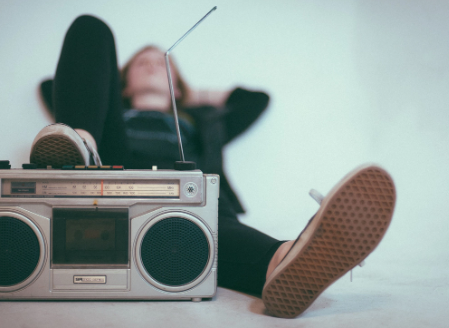TWO weeks ago, I wrote a longish essay on aspects of Nigerian music, which surprised quite a few readers, including Uncle Sam Amuka, VANGUARD’s publisher. He asked me a few questions about where my knowledge of Nigerian music came from. In the days since that piece was published, I have reflected upon the place of music in my life and I look back with nostalgia to my early years, and my father’s old GRUNDIG “changer”.
We had a very impressive collection of gramophone records: Indian songs; Jazz (and Nat King Cole was a perennial favourite!); all the contemporary highlife artists of the day, from Bobby Benson through to Rex Lawson and Adeolu Akinsanya; IK Dairo; Haruna Isola and the great Hausa crooners, from Mamman Shata; Dan Kwairo to Ahmadu Ganga Ganga.
I wonder why my head was not bursting from listening to the most eclectic choice of songs as a young, growing boy of the 1960s! And that “changer” will churn out so much music each day, inviting me, and my extended family of cousins, to sing and dance. They were really jolly years of coming into consciousness.
A combination of events that I have narrated in the past, made it almost inevitable that I was going to end up working in broadcasting. And by the late 1970s, the art of the Deejay had become so well recognized in Nigeria.
I became very popular as a Deejay on Radio Nigeria, Ilorin. When I attended the Basic Announcers’ Course at the Broadcasting House in Ikoyi, in March 1978, Radio Nigeria Two, AM-FM Stereo, was the rave, with Tony Ibegbuna; Benson Idonije; Kevin Amaechi; Ron Mgbatogu and others, being trendsetters. Radio Nigeria made its announcers real professionals; we learnt to present music and as part of the training, had to compere a real band and in my time, it was Eddy Okonta’s band that was brought into Studio Nine. Lawrence Emeka taught us about Nigerian music in a manner that today’s university professors can only envy.
And the entire ambience at the Broadcasting House, Ikoyi, was so infectious in its excellence that one was not likely to pass through and not be affected for life! I remember walking through the corridors each morning, to reach our Language Laboratory, passing by the office of the classical composer, Adams Fiberesima, with classical music wafting through loudspeakers; he seemed perpetually busy and was composer of the classical piece, HIGHLIFE NIGERIANA. The two Felas (Fela Sowande and Fela Kuti) had passed through those haloed precincts and the trumpeter, Zeal Onyia became my very good friend!
By the time the Obasanjo military regime re-organised broadcasting in 1978, leading to the emergence of states-owned broadcasting organisations, I chose to become a pioneer member of staff at Radio Kwara. The philosophy of broadcasting evolved and the mantra became Grassroots Broadcasting (GRB). We became part of a process which consciously began to collect and broadcast the different musical genres available in Kwara state: Nupe (people like Hajiya Hauwa Kulu Lafiagi); the Batonbu speaking artists who recoded mainly in Republic of Benin; the Ebirra artists (Alhaji Ahmadu Senior; Alhaji Sule Adeku; Mataga and his Umanave group and the various musical arts related to Egugu festival in Ebirra land); the Okun artists like Aina Tetebiare; and the Dadakuada; Toobeni; Baalu traditions of Ilorin and Hajiya Hassana Abake, of the Igbomina; Jolomiro from Babanloma and the travelling minstrel from the same town, Jangalade!
I used to encounter him as a child on
the train journey between Ilorin and Jebba. This remarkable repertoire did not stop us from connecting with other Nigerian forms from North and South. And as a Deejay, I researched and played the latest disco songs; reggae and other forms (the magazine BLACK MUSIC was a treasure trove of information and I never missed a copy in those days) on radio and was always invited as Deejay by students’ organisations at the University of Ilorin and the Kwara Polytechnic (called Kwara TECH then!).
I have retained an enormous appetite for music till today, and I listen to everything from classical music (what can I do without Beethoven, Mozart and Shostakovich?) through to Jazz, with Louis Armstrong, Billie Holliday and Nat King Cole ever accompanying me.
I love the musical traditions of Mali and Guinea, especially Salif Keita; Nahawa Doumbia; Ali Farka Toure; Kasse Mady; Kante Mamfila, Mory Kante and of course, those great artists from Congo: Franco; Tabu Ley; Zaiko Langa-Langa and Mbilia Bell not to forget the Camerounian Manu Dibango and Hugh Masekela from South Africa, who I spent a long time with during a reporting trip to Ghana in 2007. He told me truly remarkable tales of a time he spent as a guest of Fela at the AFRIKA SHRINE during the 1970s. I have been very lucky to be born at a remarkable juncture in Nigerian history.
Things worked pretty well in those times, and we were lucky to have been trained within a broadcasting tradition that had and demanded exacting standards. I am the professional I am, thanks to the opportunities that Nigeria gave me.It is one of those reasons that I love our country with a passionate intensity and always feel a sense of commitment to its betterment! In music, I found one of the many reasons to love and connect with the humanity of others in Nigeria and around the world.


